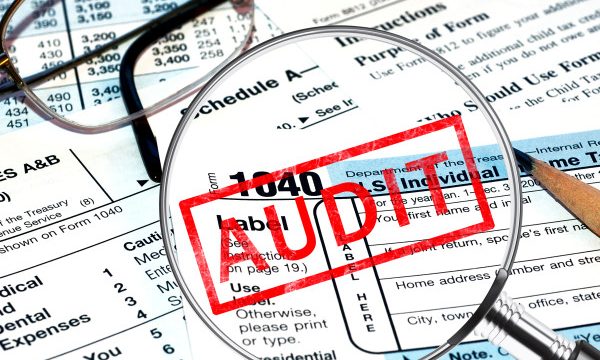IRS audit reveals leaks of taxpayers’ private information

By Eric Boehm | Watchdog.org
More bad news from the IRS.
No, they’re not coming after more of your hard-earned money, and you’re not the subject of an audit (we hope), but the Internal Revenue Service might be accidentally — or not-so-accidentally, in some cases — disclosing sensitive information about your tax returns.
An audit released this week by the Treasury Inspector General for Tax Administration, the IRS’ watchdog, found the IRS didn’t always redact personal information when releasing tax forms sought by Freedom Of Information Act requests. In more than 21 percent of FOIA responses reviewed by auditors, the IRS improperly disclosed information about individual taxpayers that should have been kept private.
NO BIG DEAL: The IRS says accidental disclosures of taxpayers’ private information on 21 percent of FOIA requests isn’t something to be worried about.
The information disclosed in the FOIA requests included personal taxpayer identification numbers and other private information, according to auditors.
Officials at the IRS told auditors the accidental disclosures were the results of “oversights” by caseworkers and management.
According to the IRS’ response to the audit, those “unfortunate and inadvertent” disclosures didn’t contain any sensitive information that could be misused.
“The impact to the IRS and taxpayers in question was minimal based upon what was released and to whom. The IRS recognizes the importance of providing accurate responses and is taking steps to strengthen our management and quality controls to avoid future inadvertent disclosures,” wrote Mary Howard, IRS director of privacy and disclosures.
But even if there was no sensitive information revealed, it’s another troubling sign that gives taxpayers reason to be worried about the IRS’ ability to maintain private information.
The new audit comes on the heels of revelations the IRS has intentionally disclosed information about some high-profile taxpayers — directly to the White House.
Austan Goolsbee, former chairman of the the White House Council of Economic Advisers, apparently obtained in 2010 private information about the tax returns of David and Charles Koch, the wealthy brothers who support a variety of libertarian political causes.
Although the Treasury Inspector General for Tax Administration launched an investigation into how the White House got that information, the report was never made public.
Now, it might have to be.
A federal judge ruled this week that records of the investigation must be turned over to Cause of Action, a watchdog group seeking the secret report.
In a funny bit of circular logic, attorneys for the government had argued in court they were forbidden from disclosing the report because it might violate taxpayers’ privacy — despite the fact those same taxpayers’ privacy had already been breached, the reason the investigation was done in the first place.
“The court has ruled that the federal government cannot hide behind confidentiality laws to prevent Americans from knowing if our president has gained unauthorized access to their tax information,” said Dan Epstein, executive director of Cause of Action.
The IRS says it’s conducting training with the goal of eliminating accidental disclosures of taxpayers’ private information.
Whether the leaks to the White House in 2010 were accidents or on purpose, we might soon have some answers.







